 Software Tutorial
Software Tutorial
 Office Software
Office Software
 How to set and cancel passwords for compressed files using WinRAR
How to set and cancel passwords for compressed files using WinRAR
How to set and cancel passwords for compressed files using WinRAR
php editor Baicao teaches you how to use WinRAR to set and cancel passwords for compressed files. In our daily work, we often need to compress files and set password protection to ensure file security. As a commonly used compression tool, WinRAR provides the function of setting and canceling passwords, making our files more secure and reliable. Through simple operations, you can easily protect files, and you can also cancel the password at any time to facilitate file sharing and management.
Setting the password is also very simple, there are two ways.
You can choose to encrypt directly when compressing files, which can protect the security of the files. Select the files that need to be encrypted and add them to the compressed file via the options in the right-click menu.
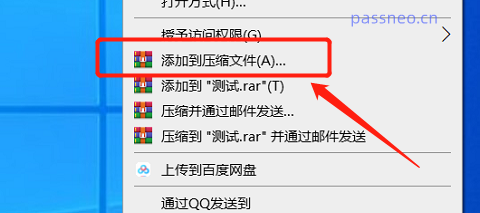 .
.
2. After selection, in the new dialog box that pops up, confirm the format of the compressed package, then click [Set Password], enter the password in the password column, and then press [OK] to set the password for opening the compressed package. It's set.
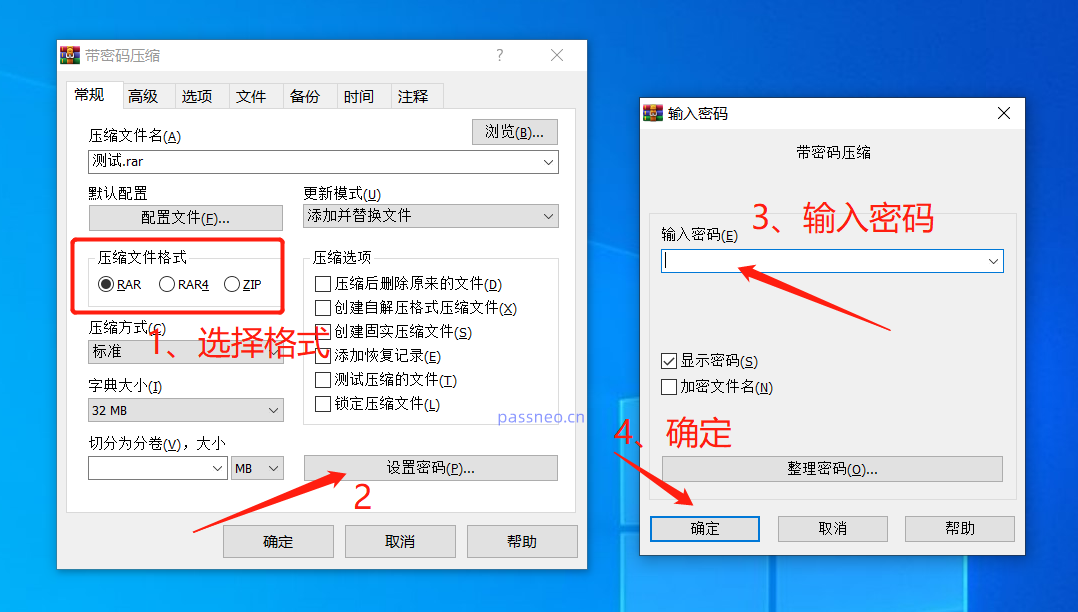 .
.
3. For a compressed package with a password set, as long as you open any file inside, you need to enter the password first.
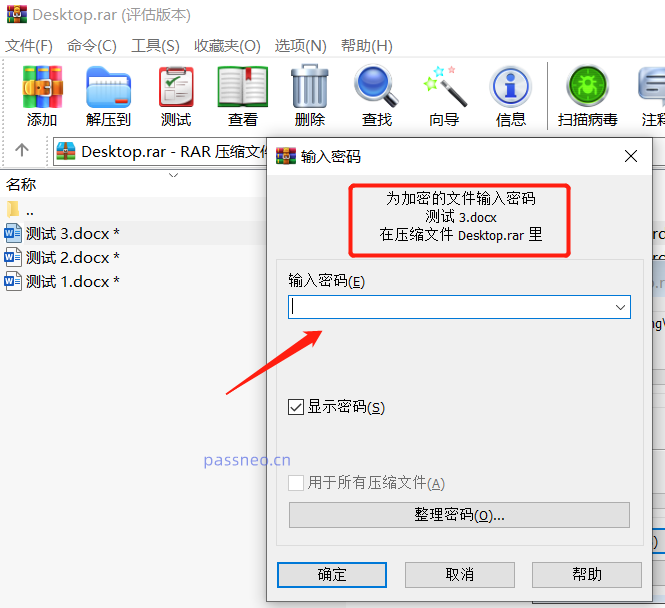
.
The second method is to set WinRAR to automatically encrypt, so that the opening password will be automatically set every time a file is compressed.
1. Open the WinRAR archive and click [Settings] in the list under [Options] on the upper toolbar.
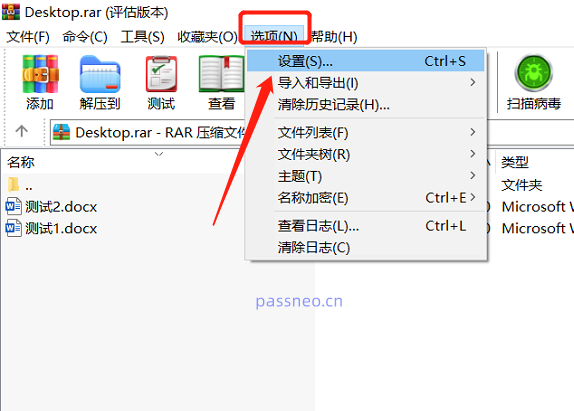 .
.
2. In the new dialog box, select [Compression]-[Create Default Configuration].
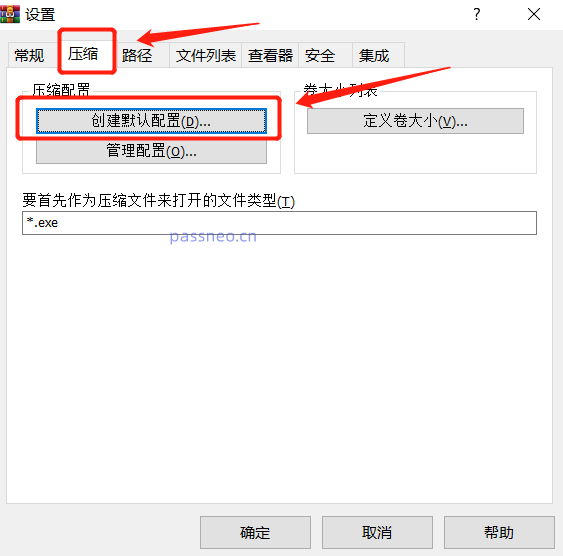 .
.
3. Subsequently, the same dialog box as the first method will appear. Still select [Set Password] and press [OK].
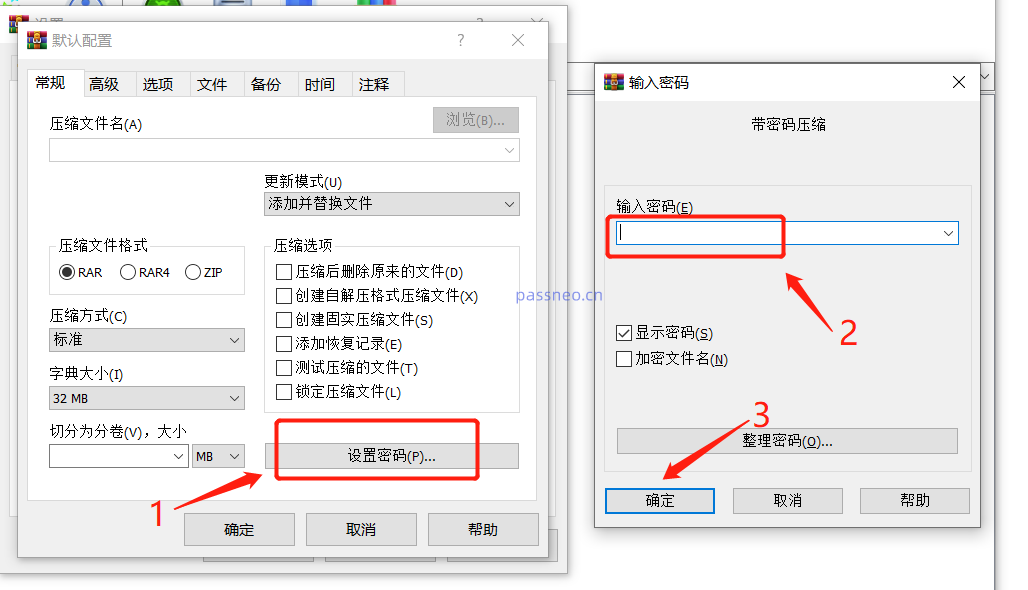 .
.
4. Enter the password in the password field and click OK. The automatic encryption of the compressed package will be set.
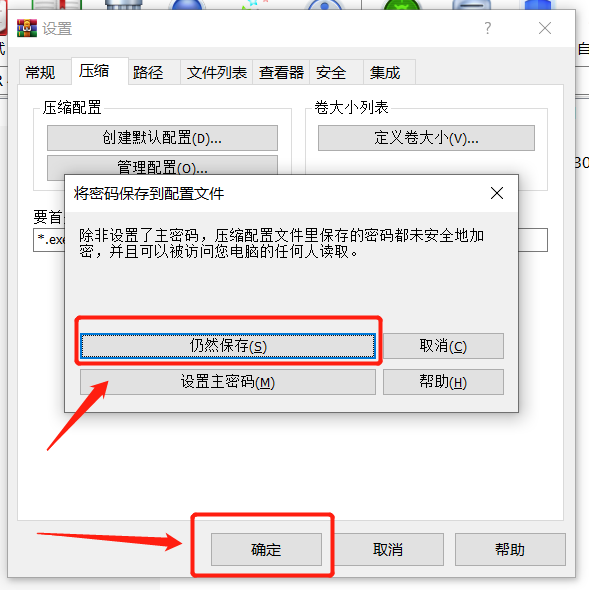
.
If we don’t need this password later, we can still cancel it, so that we don’t have to enter the password every time we open the file inside.
However, WinRAR does not directly cancel the password option. You need to decompress the files in the compressed package and put them into a new file. No password will be set after subsequent compression.
The specific operations are as follows:
1. Open WinRAR, select [Extract to], in the new dialog box, select the new folder where the files will be stored after decompression, and then click [OK].
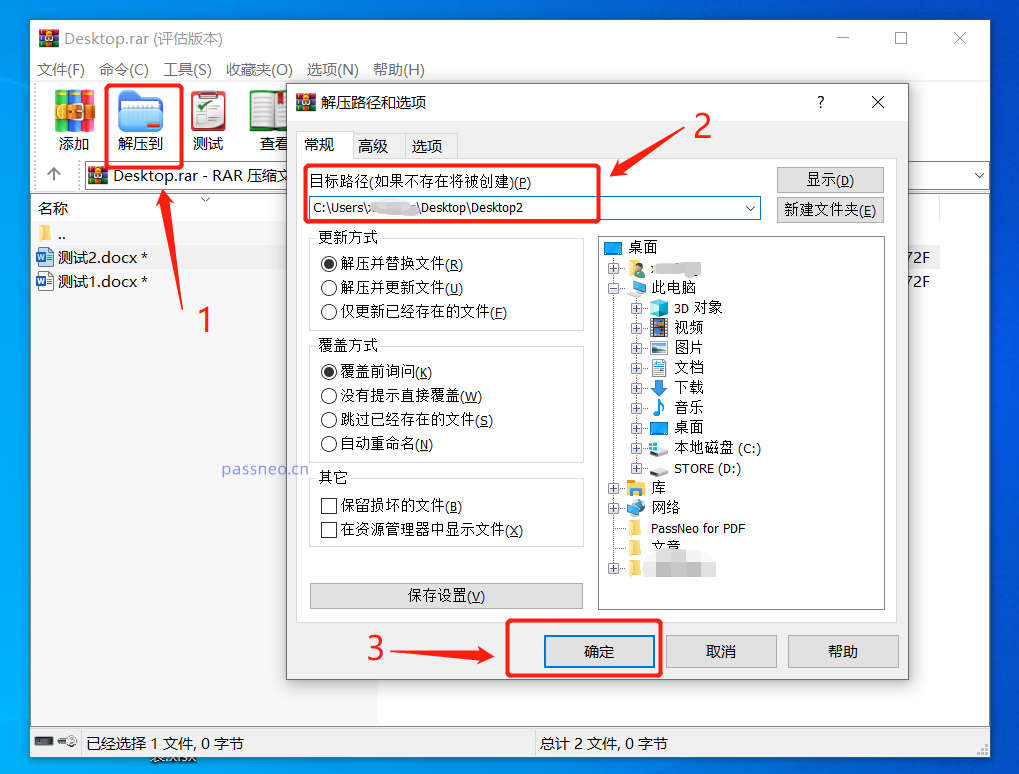
2. At this time, a new dialog box will appear, asking you to enter your password. This password is the originally set opening password. After entering it, click OK.
The files in the compressed package will be decompressed into a new folder, and the password will no longer exist. Just rezip the file and don't set a password.
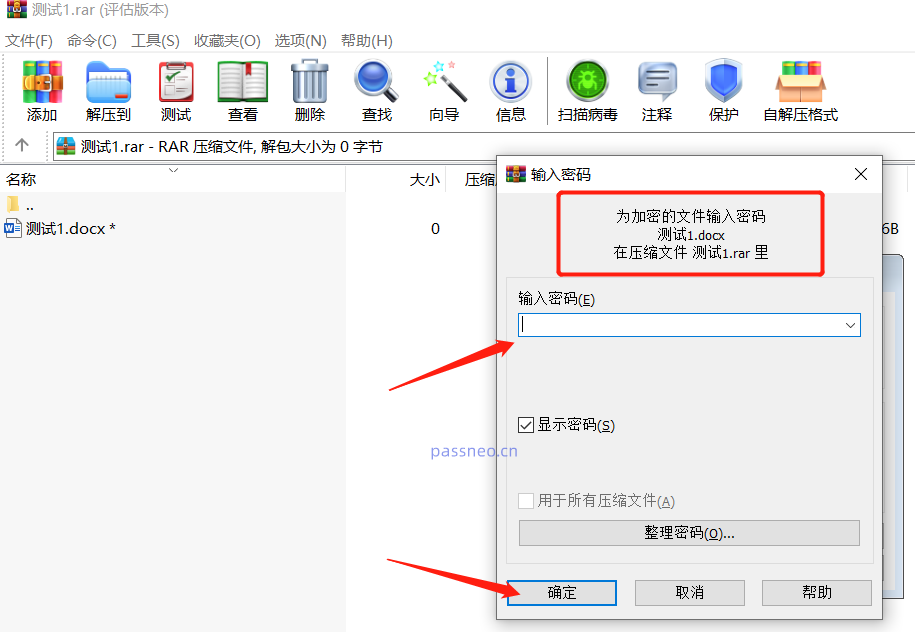
If the compressed package is in Zip format, there is another way to delete the password.
1. Select the compressed package, right-click the mouse, and then select [Windows Explorer] in [Open with]
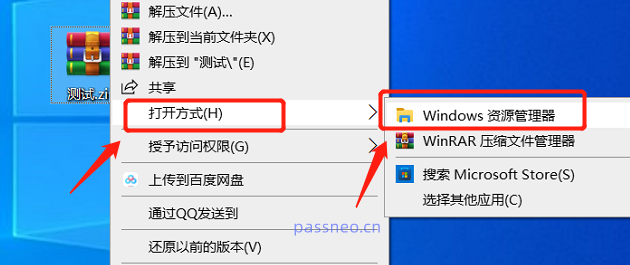 .
.
2. In the pop-up file, right-click the blank area, open the menu and select the [Delete Password] option.
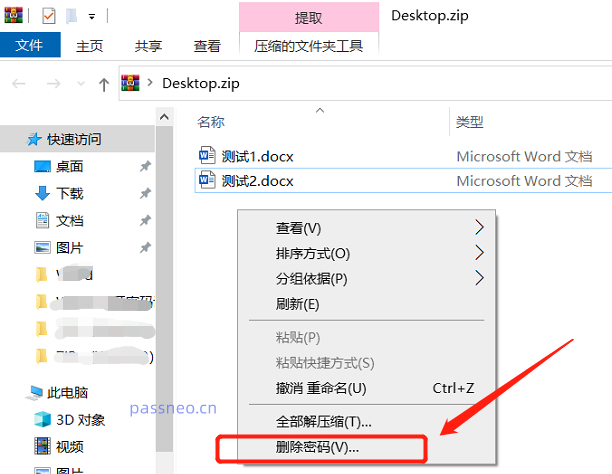 .
.
3. Subsequently, you will be prompted that the file is protected and you need to enter a password. Enter the originally set password in the dialog box to clear the password.
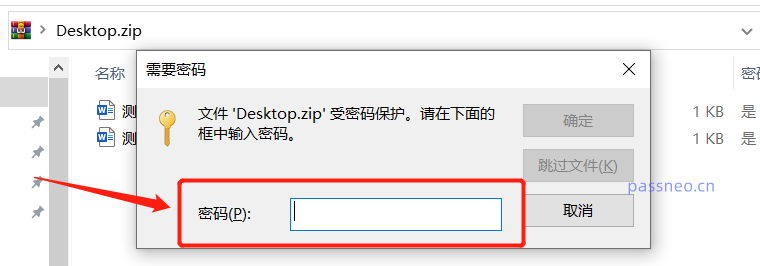
.
However, no matter which method is used to clear the password, you need to enter the original password, otherwise you will not be able to proceed further.
If I forget my password, am I unable to cancel it? Yes, let alone canceling the password, even the files inside cannot be opened, because WinRAR does not have an option to retrieve the password.
In this case, we can use other tools, such as Pepsi Niu RAR or ZIP password recovery tool.
Сначала используйте инструмент для получения пароля, чтобы вы могли как открыть сжатый пакет, так и отменить исходный пароль сжатого пакета.
Действие со сжатыми файлами ZIP или RAR одинаково. Импортируйте сжатый файл в инструмент, затем выберите один из методов извлечения, нажмите [Пуск] и следуйте подсказкам.
Инструмент восстановления пароля Pepsi Niu RAR
Инструмент для восстановления пароля Pepsi Niu ZIP
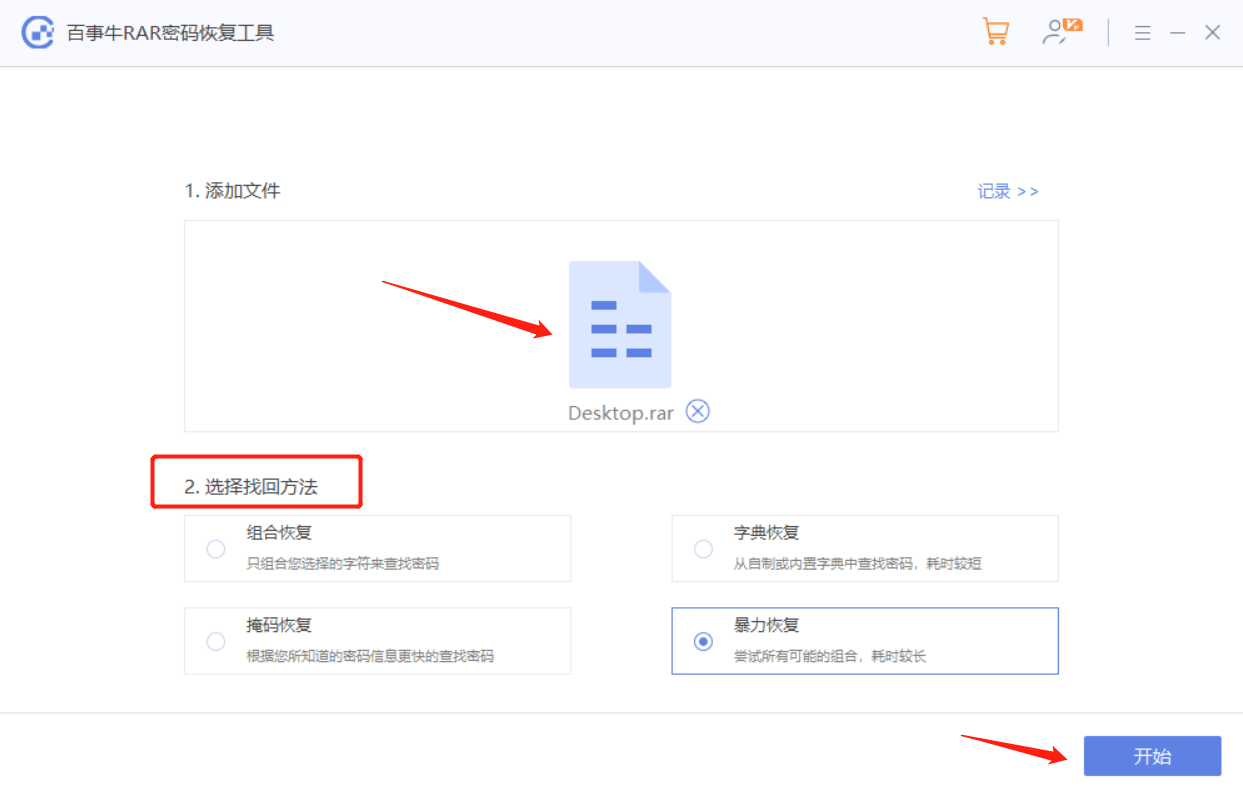
Затем подождите, пока пароль будет получен.

The above is the detailed content of How to set and cancel passwords for compressed files using WinRAR. For more information, please follow other related articles on the PHP Chinese website!

Hot AI Tools

Undresser.AI Undress
AI-powered app for creating realistic nude photos

AI Clothes Remover
Online AI tool for removing clothes from photos.

Undress AI Tool
Undress images for free

Clothoff.io
AI clothes remover

AI Hentai Generator
Generate AI Hentai for free.

Hot Article

Hot Tools

Notepad++7.3.1
Easy-to-use and free code editor

SublimeText3 Chinese version
Chinese version, very easy to use

Zend Studio 13.0.1
Powerful PHP integrated development environment

Dreamweaver CS6
Visual web development tools

SublimeText3 Mac version
God-level code editing software (SublimeText3)

Hot Topics
 Your Calculator App Can Be Replaced By Microsoft Excel
Mar 06, 2025 am 06:01 AM
Your Calculator App Can Be Replaced By Microsoft Excel
Mar 06, 2025 am 06:01 AM
Ditch the Calculator: Why and How to Use Excel for All Your Calculations I haven't touched a calculator in ages. Why? Because Microsoft Excel handles all my calculations with ease, and it can do the same for you. Why Excel Trumps a Calculator While
 5 Things You Can Do in Excel for the Web Today That You Couldn't 12 Months Ago
Mar 22, 2025 am 03:03 AM
5 Things You Can Do in Excel for the Web Today That You Couldn't 12 Months Ago
Mar 22, 2025 am 03:03 AM
Excel web version features enhancements to improve efficiency! While Excel desktop version is more powerful, the web version has also been significantly improved over the past year. This article will focus on five key improvements: Easily insert rows and columns: In Excel web, just hover over the row or column header and click the " " sign that appears to insert a new row or column. There is no need to use the confusing right-click menu "insert" function anymore. This method is faster, and newly inserted rows or columns inherit the format of adjacent cells. Export as CSV files: Excel now supports exporting worksheets as CSV files for easy data transfer and compatibility with other software. Click "File" > "Export"
 Don't Create Tables in Word: Use Excel Instead
Mar 06, 2025 am 03:04 AM
Don't Create Tables in Word: Use Excel Instead
Mar 06, 2025 am 03:04 AM
Creating tables in Word, although improved, is still cumbersome and sometimes brings more problems. This is why you should always create tables in Microsoft Excel. Why is it better to create tables in Excel? In short, Word is a word processor, while Excel is a data processor. So Word is not built for the best table creation, but its similar product, Excel. Here are just some of the reasons why creating tables in Excel is better than using Microsoft Word: Although it is surprising that you can use many Excel-like features in Microsoft Word tables, in Excel you
 How to Reduce the Gaps Between Bars and Columns in Excel Charts (And Why You Should)
Mar 08, 2025 am 03:01 AM
How to Reduce the Gaps Between Bars and Columns in Excel Charts (And Why You Should)
Mar 08, 2025 am 03:01 AM
Enhance Your Excel Charts: Reducing Gaps Between Bars and Columns Presenting data visually in charts significantly improves spreadsheet readability. Excel excels at chart creation, but its extensive menus can obscure simple yet powerful features, suc
 How to Use the AVERAGEIF and AVERAGEIFS Functions in Excel
Mar 07, 2025 am 06:03 AM
How to Use the AVERAGEIF and AVERAGEIFS Functions in Excel
Mar 07, 2025 am 06:03 AM
Quick View of AVERAGEIF and AVERAGEIFS Functions in Excel Excel's AVERAGEIF and AVERAGEIFS functions can be used to calculate the average value of a dataset. However, unlike simpler AVERAGE functions, they are able to include or exclude specific values in the calculation. How to use the AVERAGEIF function in Excel Excel's AVERAGEIF function allows you to calculate the average value of a filtered dataset based on a single condition set. AVERAGEIF function syntax The AVERAGEIF function contains three parameters: =AVERAGEIF(x,y,z)
 How to Use LAMBDA in Excel to Create Your Own Functions
Mar 21, 2025 am 03:08 AM
How to Use LAMBDA in Excel to Create Your Own Functions
Mar 21, 2025 am 03:08 AM
Excel's LAMBDA Functions: An easy guide to creating custom functions Before Excel introduced the LAMBDA function, creating a custom function requires VBA or macro. Now, with LAMBDA, you can easily implement it using the familiar Excel syntax. This guide will guide you step by step how to use the LAMBDA function. It is recommended that you read the parts of this guide in order, first understand the grammar and simple examples, and then learn practical applications. The LAMBDA function is available for Microsoft 365 (Windows and Mac), Excel 2024 (Windows and Mac), and Excel for the web. E
 Microsoft Excel Keyboard Shortcuts: Printable Cheat Sheet
Mar 14, 2025 am 12:06 AM
Microsoft Excel Keyboard Shortcuts: Printable Cheat Sheet
Mar 14, 2025 am 12:06 AM
Master Microsoft Excel with these essential keyboard shortcuts! This cheat sheet provides quick access to the most frequently used commands, saving you valuable time and effort. It covers essential key combinations, Paste Special functions, workboo
 If You Don't Use Excel's Hidden Camera Tool, You're Missing a Trick
Mar 25, 2025 am 02:48 AM
If You Don't Use Excel's Hidden Camera Tool, You're Missing a Trick
Mar 25, 2025 am 02:48 AM
Quick Links Why Use the Camera Tool?





